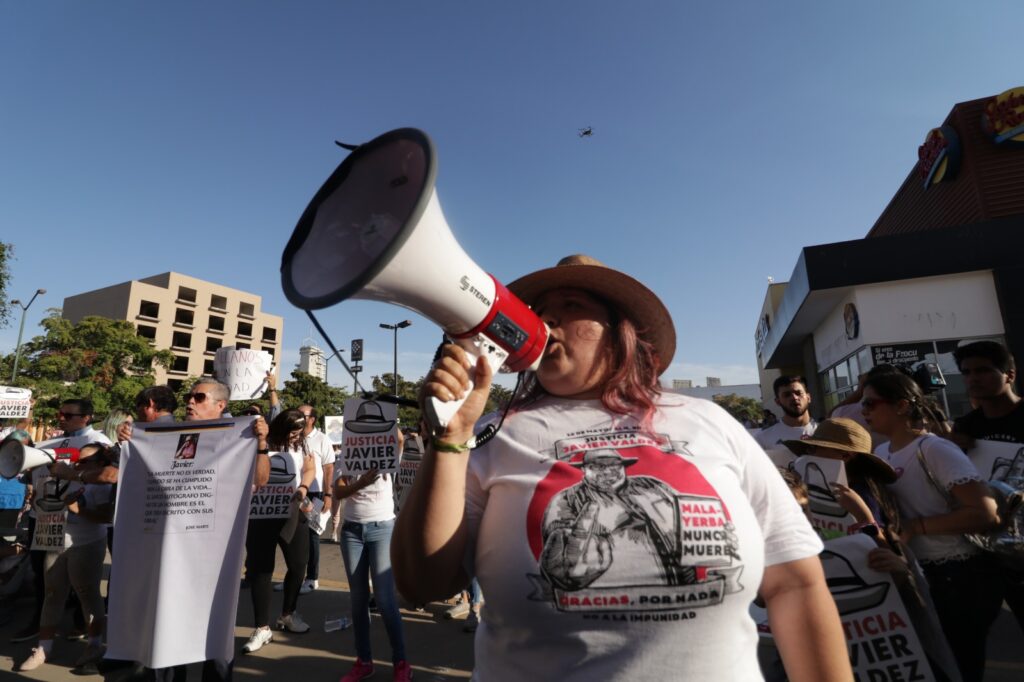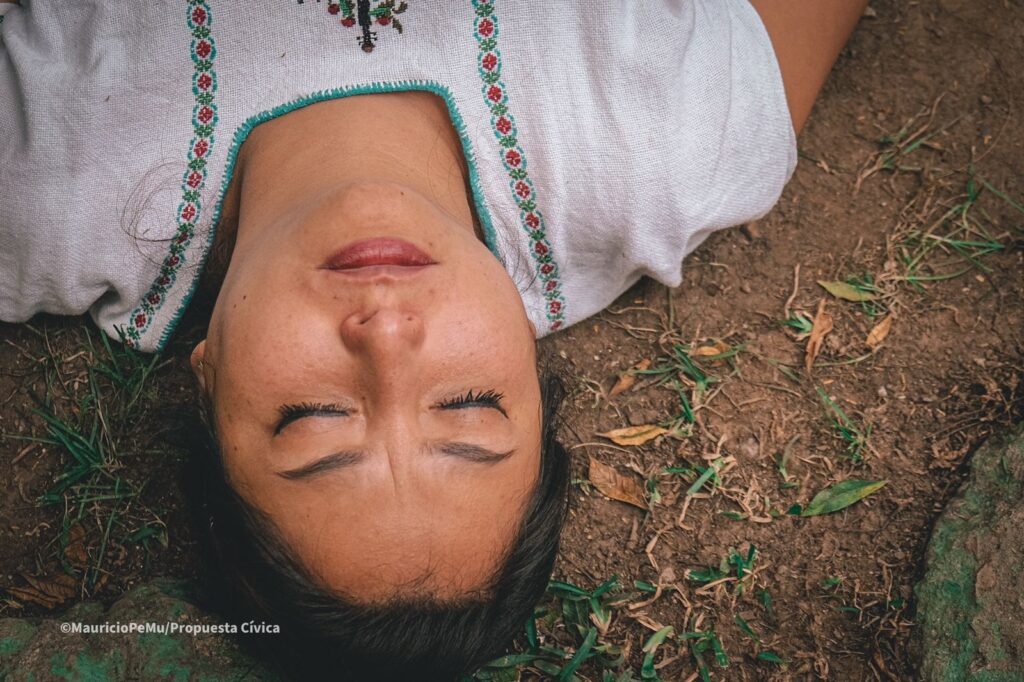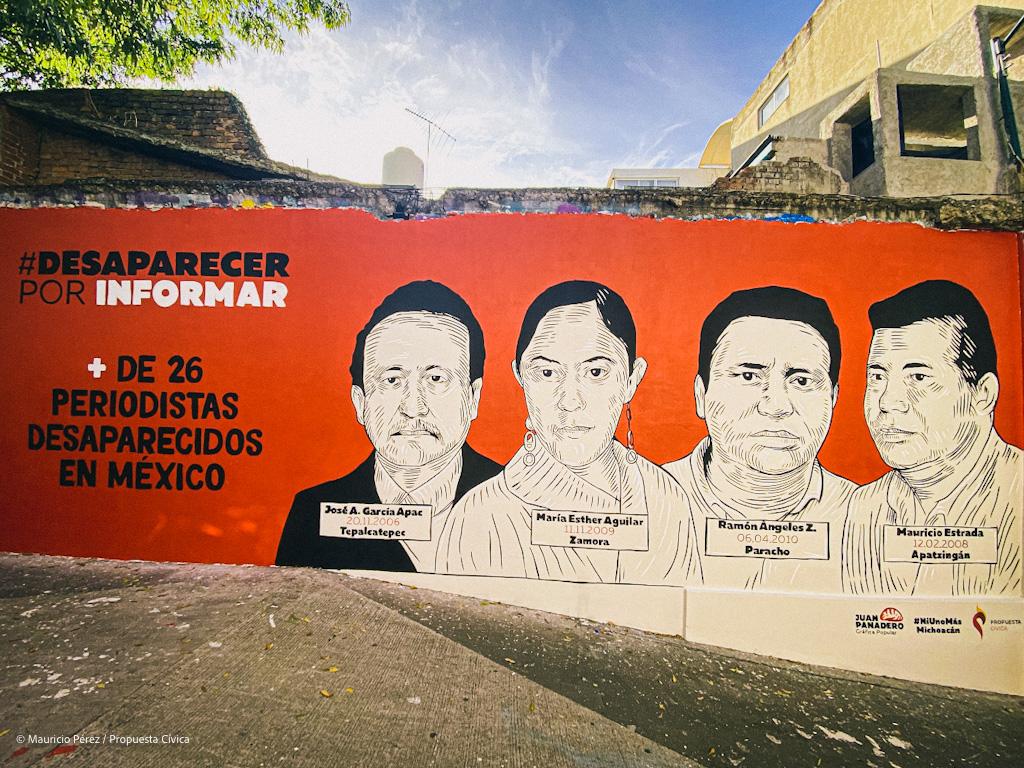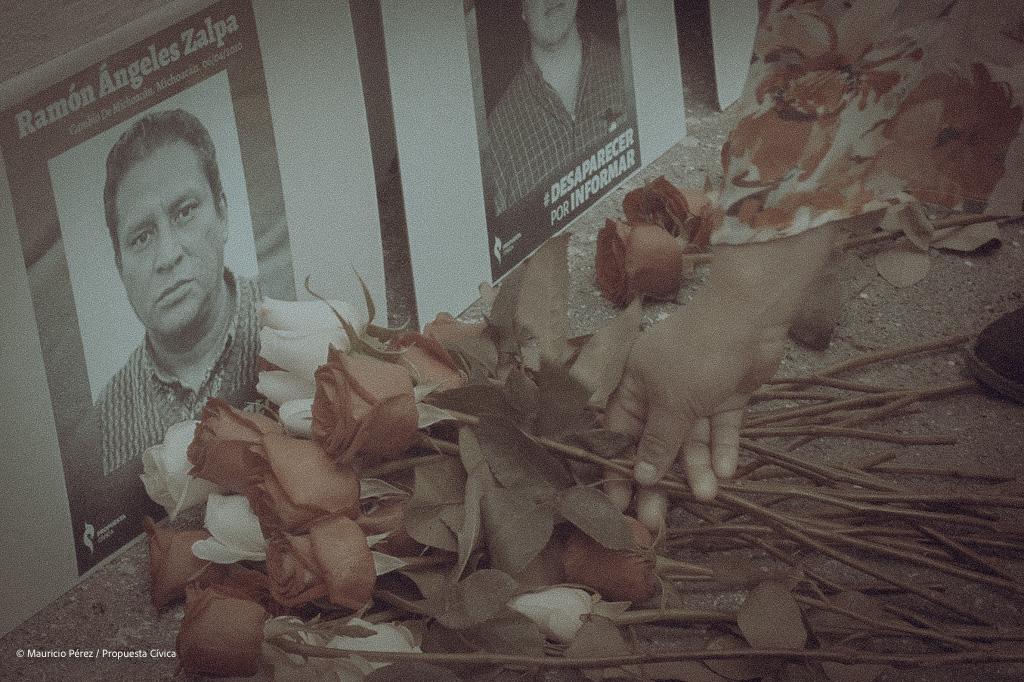For four years in a row, Mexico has been the country with the highest number of journalists murdered in the world, and 2022 was the year with the highest number of victims ever recorded. Impunity is the rule in these cases, and of the 105 investigations into murders of journalists conducted by the Federal Special Prosecutor's Office for Crimes Against Freedom of Expression (Feadle, by its Spanish acronym) from its creation in 2010 through May 2022, only six have resulted in murder convictions.
To respond to the non-stop violence and threats, the Tejidos Solidarios [Weaving Solidarity] network was created, an initiative of the human rights NGO Propuesta Cívica [Civic Proposal]. The network uses its own methodology to offer psycho-emotional and legal support to the families of victims of murdered and missing journalists, as well as to keep alive the memory of those who lost their lives dedicating themselves to the craft of investigating and reporting.
Propuesta Cívica has been helping families of journalists who are victims of violence for 12 years, while the Tejidos Solidarios network emerged in 2021 and went public last April. The initiative starts from the understanding that victims’ relatives suffer isolation, fear, and lack support tools. To address these problems, a national network was formed in which victims' relatives can come together and find mutual support.
"Despite the fact that in Mexico there are a large number of missing and murdered people, and there are movements and networks of families searching for their relatives, in the case of journalists, the families were totally isolated," Sara Mendiola Landeros, executive director of Propuesta Cívica, which coordinates Tejidos Solidarios, told LatAm Journalism Review (LJR). "On many occasions, journalists' families chose isolation. This only aggravates their vulnerability and suffering. This is how the idea of forming a national network came about."
One of the families served is that of journalist Javier Valdez, who was murdered on May 15, 2017 in his home state of Sinaloa, in the western part of the country. His daughter, Tania Valdez, said that she approached Propuesta Cívica a year after the crime. Tania has participated in the three national gatherings of Tejidos Solidarios, the last of which took place in early June.
"Being able to carry out these processes together with other families has strengthened us a lot, because we know that there are other groups of people who have gone through the same thing, and we share the same feelings and emotions," Tania told LJR. "In my case, for example, there are other young women my age, daughters of disappeared journalists, who also don't have a father. Creating these bonds helps to fill a little bit of the void that is in my heart because my dad is gone."

Tania Valdez, daughter of the journalist Javier Valdez, in a demonstration asking for justice for her father (Photo: Mauricio Perez/ Propuesta Civica)
Also part of the network is Guadalupe Ángeles Méndez, daughter of journalist Ramón Ángeles Zalpa, who disappeared on April 6, 2010 in Paracho, Michoacán, in the central-western part of the country, and whose whereabouts are still unknown. The Mexican government offered her sporadic psychological support, which she described as a waste of time and emotionally damaging.
"Their psychological support was the worst thing I could’ve had. Their speeches were always very bad, far from making you feel calm or healing your unfinished grief, they only managed to damage this emotional part a little more."
This experience comes in direct contrast to that offered by Propuesta Cívica.
"The psychological support provided by Propuesta Cívica has been very good. Then, the creation of Tejidos Solidarios has also given us hope, knowing that you will be able to accompany other people based on your experience."

Guadalupe Ángeles Méndez, daughter of journalist Ramón Ángeles Zalpa, who disappeared on April 6, 2010 in Paracho, Michoacán (Photo: Mauricio Perez/ Propuesta Civica)
Seven families are currently being assisted by Tejidos Solidarios. And at the beginning of June, when this interview took place, two more were about to join the network. Besides the psychosocial and emotional support, multiple services comprise the assistance offered — the promotion of unity among families, legal follow-up, documentation and investigation, and contribution to public policies.
According to the executive director of Tejidos Solidarios, most of the victims did investigative journalism on issues of corruption, drug trafficking, and infiltration by organized crime in the State, in the most violent states of the country. Helping them access justice is one of the most important services, in a country where the non-resolution of crimes is the rule.
"Impunity rates in our country are extremely high. In the case of homicide, impunity reaches 95%. In the case of disappearance, impunity is 100%. No authority has solved the disappearance of a journalist, which shows that the Mexican State has no interest in reversing this situation of violence, harassment and criminalization against journalists, said Mendiola Landeros."
"Faced with this, access to paths to justice for families are tortuous. And part of the goals that Tejidos Solidarios seeks is precisely to embrace more families, incorporate them to the network, spark actions of political impact, and demand access to justice, truth and reparation for damages," she added.
According to Ángeles Méndez, filing a report for her father's disappearance was initially difficult due to established protocols and rules that prevented the family from filing a report before 72 hours had passed since the disappearance.
However, her father, who also worked as a professor of Pedagogy, had connections with some people who worked in the government, and her mother approached them to inform of the situation and emphasize that the disappearance was not a common occurrence.
Contacts in the Public Ministry then pushed for the report to be registered immediately, bypassing the usual three-day wait. Ángeles Méndez said that filing the complaint was just a formality, since no significant action has been taken since.
Although her mother was "very insistent," after an initial period, it was clear that there was not enough interest on the part of the Mexican State to solve the crime, she said.
"Only hearings were held in which my mother was present for about two months. She was very persistent in showing up in different places, especially since he was a journalist and also a professor. It was through his work as a journalist that we had more visibility and pressure," said Ángelez Méndez.
"But in essence nothing was done, you can't say we had access to justice. People and lawyers came forward at that time to fill out forms, which resulted in some documents and search sheets that have been distributed in different parts of the country. And that’s all.”

A mural painted in the city of Morelia, in Michoacan, demanding justice for missing journalists (Photo: Mauricio Perez/ Propuesta Civica)
With the help of Propuesta Cívica, the family went through the judicial process of declaring a presumption of death for Ángeles Zalpa, which involved a two-year procedure to obtain the necessary documentation for legal purposes.
In November last year, Propuesta Cívica and Reporters Without Borders filed a complaint before the United Nations Human Rights Committee. They pointed out the responsibility of the Mexican State in the case of the disappearance of Ramón Ángeles Zalpa and journalist Mauricio Estrada Zamora, who disappeared in 2008.
The case of Javier Valdez is an exception to the pattern of impunity, as there was a conviction of two of the three accused of being material authors. Currently, Propuesta Cívica is seeking the extradition of the intellectual author, who is in the United States.
Valdez's family lived under the protection of the federal mechanism in Mexico City for two years. His wife and son are still living under forced displacement and have not been able to return to Sinaloa.
"Demanding justice in Mexico is very revictimizing, [it’s] a very tiring process, very exhausting, especially mentally and emotionally," his daughter Tania said. "Accessing a path to justice is complicated. Oftentimes, Mexican authorities have not been trained and lack a human perspective of understanding the suffering of the victims."
In terms of public policies, the most urgent, according to Mendiola Landeros, is precisely that Justice works. According to her, many human and financial resources have been allocated to the protection policy in Mexico, but the protection mechanism for journalists and defenders is neither efficient nor preventive.
In her view, Justice cannot rely only on a reactive protection mechanism; instead, it is necessary to strengthen the criminal public policy to address crimes committed against journalists.
“We have become fascinated or obsessed with strengthening public protection policy and we have abandoned public criminal policy. It should be the other way around," the coordinator of Tejidos Solidarios said.
"As long as public criminal policy is not strengthened to deal with crimes committed against journalists, no mechanism will work and no public resources will suffice to protect journalists."

A photo of Ramón Ángeles Zalpa in a memorial (Photo: Mauricio Perez/ Propuesta Civica)
(Banner photo: Mauricio Perez/ Propuesta Civica)